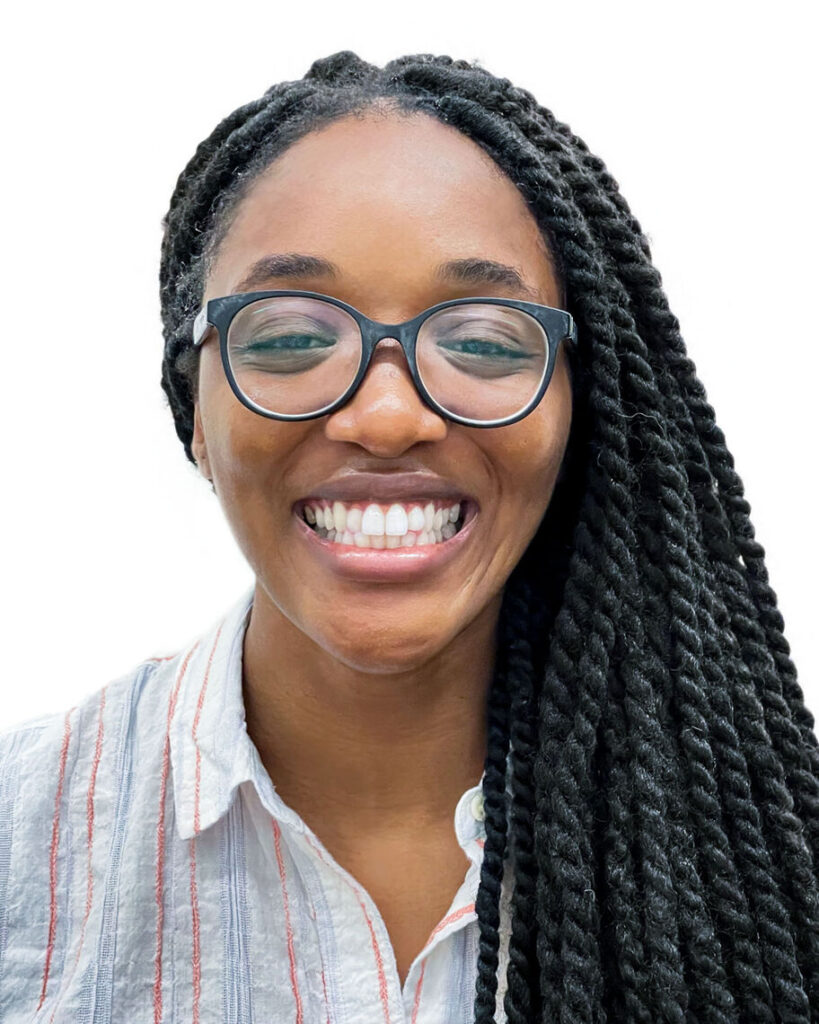- Fellow Highlights
LOOKING BACK AT THE FELLOWSHIP: MD/PhD Student Tania Fabo
2022 Paul & Daisy Soros Fellow Tania Fabo is an MD/PhD student at Stanford University.
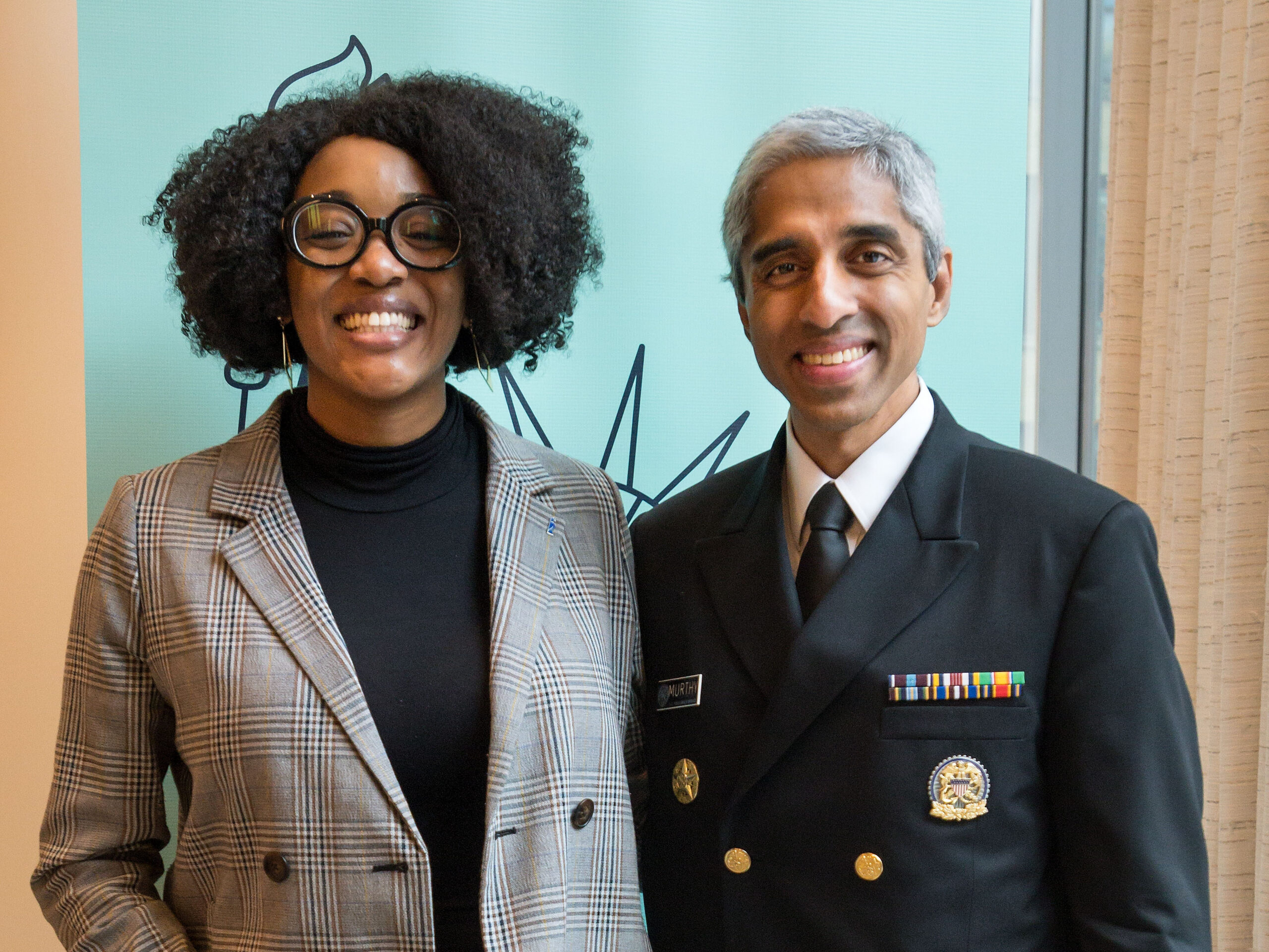
Tania Fabo was born in Hamburg, Germany to two Cameroonian immigrant parents, where they developed a love for science, math, and engineering—a love which brought them to Germany for graduate school. When Tania was seven, she moved with her parents and little sister to Massachusetts.
Tania’s love for science ultimately led her to an undergraduate degree at Harvard University, where she majored in human developmental and regenerative biology. She began working in the lab of Professor Leonard Zon, where she ultimately completed her senior thesis on the role of the transcription factor CDK13 in metastatic melanoma.
Tania was awarded the Rhodes Scholarship for study at Oxford University, where she pursued an MSc in medical anthropology and an MSc by research in oncology. Her ultimate goal as a physician-scientist is to challenge the traditional separation of the scientific and the social, and to instead integrate these two fields to uncover how people’s lived experiences, and the societal structures that they are situated in, affect the pathophysiology and mechanisms of disease.
We caught up with Tania about what’s next and what the Fellowship has meant to her:
Where are you with your graduate program now? Whether you’re still in school or you’ve graduated, what’s the next step for you or what are the steps you’ve taken after graduating?
I am an MD-PhD student at Stanford University, in my 4th year overall and 2nd year of graduate school as a PhD student in Genetics. As my goal is to become a physician-scientist who both runs a lab and sees patients, after graduating, I will likely pursue a combined residency-postdoc to facilitate the eventual (hopeful) transition to faculty.
Can you tell us more about your graduate studies? What questions were you/are you pursuing? What was/is the main focus of your studies?
My ongoing PhD work is an investigation of diet gene-by-environment interactions in colorectal cancer–that is, how the effects of genetic variants linked to colorectal cancer risk might be modulated by diet. This project was borne out of a larger research interest in exploring mechanistic biology and disease pathophysiology through a social and environmental lens. Much of our lab’s and other labs’ prior work in functional genomics has often looked at single cell states. However, we know that the state of a cell varies over a lifetime, and in particular to exposures, from those created by the body (e.g. inflammatory cytokines) to those received from external sources (e.g. diet). I was thus interested in adapting high throughput functional genomics tools to study how genetic risk for colorectal cancer can be context-dependent.
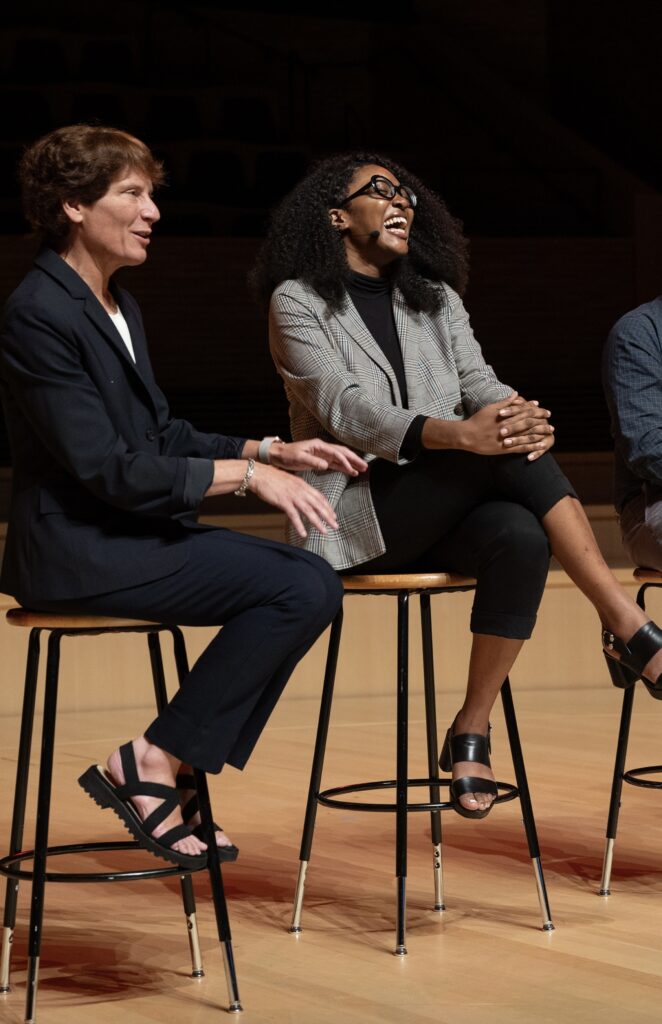
I chose diet as an environmental stimulus that is known to stratify by social status and focused my study on two metabolites of high fiber and high fat diets, butyrate and deoxycholic acid, respectively, as potential molecules mediating diet-based risk modulation of colorectal cancer risk. My work so far has nominated hundreds of novel colorectal cancer risk variants displaying diet-specific activity, with a curious opposing effect seen between butyrate and deoxycholic acid. Ongoing work seeks to validate these findings through both orthogonal experimental methods and population-based studies.
Over the past two years, what personal or professional accomplishment are you most proud of?
I am very proud of how I have maintained my personal relationships through the highs and lows of graduate school, especially with the distance between me and many of my loved ones. Graduate school can take a huge toll on mental health and wellness, and I have been no exception, but I would not have made it to where I am today without the late-night FaceTimes with East Coast friends, or walks around campus with my lab bestie. I could not, and would not even try to, imagine where I would be without them.
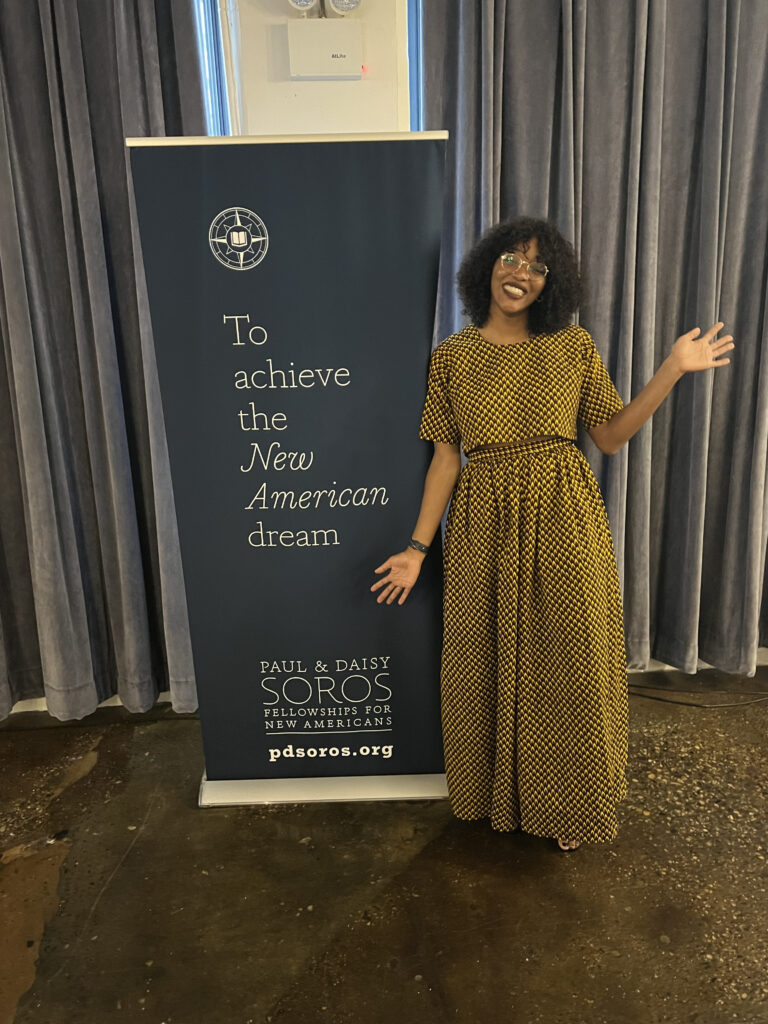
How do you describe The Paul & Daisy Soros Fellowships for New Americans program to others?
It is not very often that you get to be in community with so many people who just “get it.” People who are kind and empathetic and compassionate, often despite having had such graces extended to them by the forces of the world. It is a fellowship that sees us for human beings with lives and stories that extend beyond what’s on the CV. It is a really special fellowship to be a part of and you will not regret applying.
Do you have any favorite memories from the past two years as a Paul & Daisy Soros Fellow?
Basically every part of both Fall Conferences, but some highlights include impromptu dance party, karaoke nights, random deep couch conversations, seeing my college a capella-mate in a Broadway show, and more! ∎
Keep Exploring
-
 Read more: The Public Voices Fellowship of PD Soros, in partnership with the Oped Project: Year Four
Read more: The Public Voices Fellowship of PD Soros, in partnership with the Oped Project: Year FourThe Public Voices Fellowship of PD Soros, in partnership with the Oped Project: Year Four
-
Read more: NOT ON MY RESUME: Ming Hsu Chen
- Fellow Highlights
- Fellows in Action
NOT ON MY RESUME: Ming Hsu Chen
-
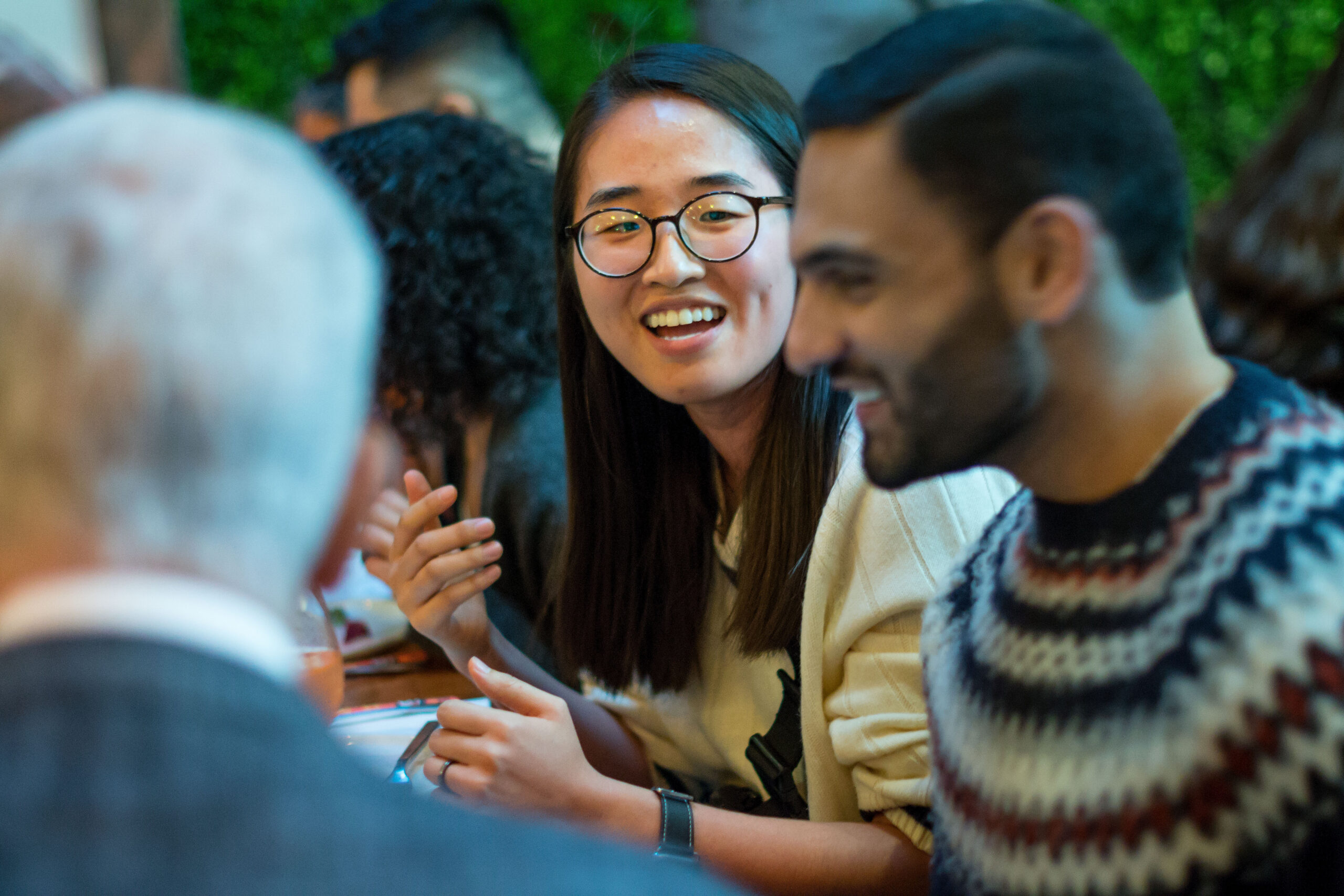 Read more: Kathy Ku Steps into Leadership as PDSFA Chair
Read more: Kathy Ku Steps into Leadership as PDSFA Chair- Board of Directors
- Fellowship News
Kathy Ku Steps into Leadership as PDSFA Chair
-
 Read more: Q&A with MD/PhD Student Silvia Huerta Lopez
Read more: Q&A with MD/PhD Student Silvia Huerta LopezQ&A with MD/PhD Student Silvia Huerta Lopez
